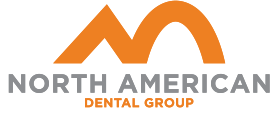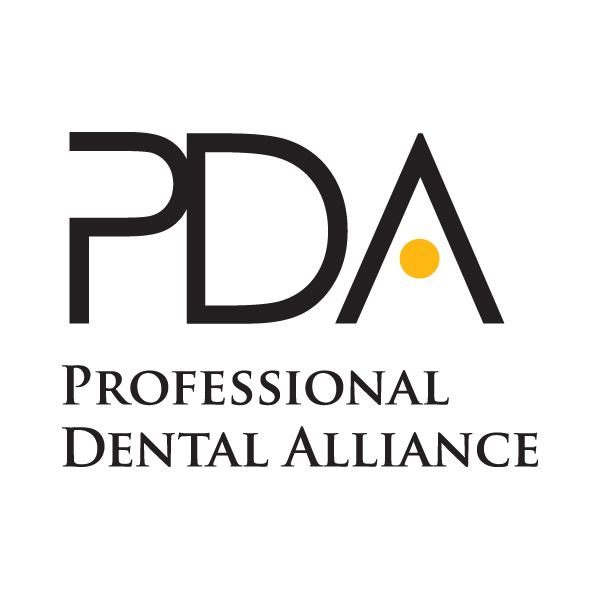North American Dental Group (NADG) Responds to Inaccurate and Misleading USA Today Article
Overview
In mid-March, USA Today and Newsy published an article focusing on NADG that is factually inaccurate and misleading. NADG has contacted USA Today and Newsy to demand a retraction and has retained litigation counsel to evaluate whether to take legal action.
When USA Today initially reached out for information, NADG leadership was cooperative with the reporters, providing data and background information that demonstrates why and how we operate with patient health and satisfaction at the heart of our mission, processes, and practices. We also provided information demonstrating how NADG affiliated dental practices have served millions of patients successfully and to their satisfaction.
However, USA Today and Newsy chose to sensationalize and mischaracterize a select few cases and testimonials that are several years old at this point – and based on the size and scope of our network, these limited examples are in no way representative of our operation. It’s also important to point out that NADG is not involved in any clinical decision-making in the practices within our network. NADG is a separate entity that provides support services to practices through a management services agreement. NADG-affiliated practices are 100% owned by dentists who are part of the Professional Dental Alliance “PDA.”
The article was a biased attempt to paint NADG, other dental service organizations and the dental profession itself with a broad, inaccurate and sensationalized brush to generate consumer clicks.
Myth vs. Fact
We were shocked to see many of the claims in the article because we had provided fact-based responses to USA Today that directly contradicted these claims, but they were ignored. Here are few examples of the inaccuracies and defamatory reporting evident in the article. The myth purported by USA Today is corrected with the corresponding fact that USA Today was provided, but chose to leave out.
Myth
Fact
The article claims that NADG has become “a lightning rod for complaints,” based on assertions from five individuals out of millions employed and served by NADG-affiliated practices. It then suggests that NADG knew it has provided substandard care because it “would not comment on ... any other patients named in this story.”
NADG is unable to comment on any specific patient without violating the Health Insurance Portability and Accountability Act (“HIPAA”). It’s irresponsible for journalists to ask for us to comment on specific patient cases.
In 2019, NADG supported practices received 13,307 patient reviews, primarily on Google and Facebook, with an average rating of 4.6 out of 5.0. Our team responds to every negative review to try and make things right and learn from any mistakes.
The article repeatedly suggests that the NADG-affiliated dental offices have a practice of routinely providing unnecessary treatment to patients.
The article bases this assertion on the claims of three people from two dental offices in Ohio. None of these sources have worked at a NADG-affiliated dental office since 2016.
The PDA has a Quality Assurance Committee, which is comprised of a panel of dentists who review treatment records and determine if a treatment is within the standards set by PDA’s Dental Advisory Board.
The Quality Assurance Committee investigates incidents where a PDA member believes over or under treatment may have occurred.
The article claims that “North American Dental Group follows a new trend of dental offices bought by private-equity investors.”
The Dental Service Organization (“DSO”) model has existed for over 25 years. NADG is not currently owned by any U.S. private equity company. We are owned by approximately 150 dentist partners of the PDA and Jacobs Holdings, an investment firm whose sole economic beneficiary is the Jacobs Foundation, which funds research projects and intervention programs and supports scientific institutions to bring about social change in the area of child and youth development.
The article next claims that “private equity firms often saddle their companies with heavy debt at junk-bond-caliber interest rates,” creating the false impression that NADG is one of those companies. This also creates the impression that privately owned dental practices do not have debt.
One of the benefits of a DSO model is that any debt is owned at the management company level, separate and apart from the dental practices. In many private practices, dentists have personal liability for whatever debt they might have from investing in the practice. By holding the debt at the management level, dentists are sheltered from that risk and the pressure that comes from that. This valuable context and background about operating dental practices in today's health care marketplace was provided to the reporters but was not included.
The article states that NADG told dentists to “meet aggressive revenue targets or risk being kicked out,” which allegedly increased pressure on dentists to perform unnecessary treatments on patients, and further claims that “[t]he financial squeeze was part of a daily companywide ritual known as the ‘morning huddle.'"
The PDA has only ever removed a dentist for substandard care, ethical reasons, or a lack of cultural fit. As our founders told the reporters, NADG has never removed a dentist for lack of revenue or not meeting a productivity requirement, nor does the article point to such an example.
“The morning huddle” is based on the purported experience of one office nearly three-and-a-half years ago. Further, the purpose of the morning huddle is to express gratitude and provide the opportunity to review the day ahead so the team is prepared for scheduled patients as well as potential emergency care that could be worked into the day to create access to care.
The article claims that NADG “tracks how often dentists diagnose advanced gum disease [and] [i]f an office is diagnosing the disease less often than prevalence statistics from the American Dental Association ... the dentist will be told about it and may get training about the disease,” creating the misleading impression that NADG pressures dentists to increase advanced gum disease diagnoses.
On the contrary, no such pressure is applied on any dentist. In addition, NADG told the reporters that the PDA, the PDA’s Dental Advisory Board or dentists within the PDA train other dentists on the periodontal standards if a dentist is struggling to properly diagnose patients.
The article states that “Dental chains, including North American Dental, have devised company structures that allow them to skirt those [state] laws” requiring “dentist[s] to own a dental practice,” creating the misleading impression that NADG and the dentists they support are subject to little to no government oversight.
All dental practices associated with NADG are owned by PDA, which is 100% owned by dentists. Those dentists, who treat patients and make all clinical decisions, are subject to the exact same government oversight as any other licensed dentist.
The article states that “North American Dental Group was started by [Mr. Cooper] who never went to dental school,” creating the misleading impression that NADG does not have any expertise in providing administrative support to dental offices. It also states that Mr. Cooper “landed a job in a dental office in Canfield, Ohio.”
Our founder and CEO, Ken Cooper, purchased the non-clinical assets of the office and took over the administrative management of the office.
To date, Mr. Cooper has over 50,000 hours of dental administrative experience, and NADG was founded by him and Dr. Andrew Matta, who is a licensed dentist.
The article states that Mr. Cooper pled no contest to a felony drug charge.
He actually pled no contest to a misdemeanor – another glaring factual error – and it occurred 20 years ago.
The article claims dental boards rarely act on complaints.
The PDA has peer reviews of complaints, as well as an anonymous hotline, managed by an independent third party to allow employees to report suspected under or over treatment or other possible misconduct.
The PDA and NADG have compliance departments that manage complaints, insurance reviews, and facilitates oversight of regulatory and compliance demands of all clinical and non-clinical departments.
The article claims that NADG employs dentists who provide substandard care, pointing to the example of Dr. Michael Griesmer.
Dr. Griesmer has not been associated with NADG as a dentist or partner since April 2014 when he was removed from patient care based on NADG's peer review process – a fact that was left out of the article.
Testimonials
The following statements categorically refute the allegations presented in the USA Today/Newsy article and are representative of the true nature of NADG’s presence in the dental industry and among out network of partners.
Quinn Dufurrena, DDS, JD
Chief Dental Officer
Allegheny Health NetworkI am writing in response to recent coverage of Dental Service Organizations and, specifically, North American Dental Group.
I have worked with both Dr. Andrew Matta and Ken Cooper for many years. Both exhibit the highest ethical standards in their business and clinical dealings. The culture they created at NADG is one of unwavering ethical treatment of their patients and treating dentists.I was recently asked if these “corporate dental practices” push dentists to over-treat their patients. The facts indicate to me that there are unethical and ethical dentists in both solo practice and in DSO-supported group practice.
It is the individual professional that chooses their course of action and the consequences of those actions. Being in private practice for over 20 years, I am well aware of the different courses dentists take to get patients to agree to large treatment plans. Since dentists are reimbursed based on procedure codes there is an incentive and natural tendency to do more and higher paying procedures. However, at the very ethical core is the notion that the individual doctor is the captain of the ship when it comes to dental decisions.
Therefore, an individual dentist can neither abdicate nor blame others for the treatment plans put forth for patients. If a dentist feels outside pressure to overtreat then it’s their responsibility to change their environment. The bottom line is that utilization reports find no correlation between overtreatment and whether a dentist practices with a DSO or in traditional private practice.
***Viewers may have read the article in USA Today or in a local news outlet.

